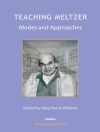Detecting Deception offers a state-of-the-art guide to the detection of deception with a focus on the ways in which new cognitive psychology-based approaches can improve practice and results in the field.
- Includes comprehensive coverage of the latest scientific developments in the detection of deception and their implications for real-world practice
- Examines current challenges in the field – such as counter-interrogation strategies, lying networks, cross-cultural deception, and discriminating between true and false intentions
- Reveals a host of new approaches based on cognitive psychology with the potential to improve practice and results, including the strategic use of evidence, imposing cognitive load, response times, and covert lie detection
- Features contributions from internationally renowned experts
Innehållsförteckning
Contributors vii
Series Preface xi
Introduction xv
Acknowledgements xix
SECTION I: Deception Detection: Established Approaches 1
1 Verbal Lie Detection Tools: Statement Validity Analysis, Reality Monitoring and Scientific Content Analysis 3
Aldert Vrij
2 New Findings in Non-Verbal Lie Detection 37
Charles F. Bond, Timothy R. Levine, and Maria Hartwig
3 The Polygraph: Current Practice and New Approaches 59
Ewout H. Meijer and Bruno Verschuere
4 Forensic Application of Event-Related Brain Potentials to Detect Guilty Knowledge 81
William G. Iacono
5 Deception Detection Using Neuroimaging 105
Giorgio Ganis
SECTION II: Current Challenges 123
6 Exploring the Nature and Origin of Beliefs about Deception: Implicit and Explicit Knowledge among Lay People and Presumed Experts 125
Maria Hartwig and Pär Anders Granhag
7 Discriminating between True and False Intentions 155
Erik Mac Giolla, Pär Anders Granhag, and Aldert Vrij
8 Cross-Cultural Deception Detection 175
Paul J. Taylor, Samuel Larner, Stacey M. Conchie, and Sophie van der Zee
SECTION III: Improving Lie Detection: New Approaches 203
9 A Cognitive Approach to Lie Detection 205
Aldert Vrij
10 The Strategic Use of Evidence Technique: A Conceptual Overview 231
Pär Anders Granhag and Maria Hartwig
11 Investigating Deception and Deception Detection with Brain Stimulation Methods 253
Giorgio Ganis
12 Detecting Deception Through Reaction Times 269
Bruno Verschuere, Kristina Suchotzki, and Evelyne Debey
13 Suspects’ Verbal Counter-Interrogation Strategies: Towards an Integrative Model 293
Pär Anders Granhag, Maria Hartwig, Erik Mac Giolla, and Franziska Clemens
14 Covert Detection of Deception 315
Eitan Elaad
Index 339
Om författaren
Pär Anders Granhag is Professor of Psychology at the University of Gothenburg, Sweden. He has published over 200 scientific reports on topics relating to deception detection and is the Founding Director of the Research Unit for Criminal, Legal and Investigative Psychology.
Aldert Vrij is Professor of Applied Social Psychology at the University of Portsmouth, UK. He is the author of Detecting Lies and Deceit: Pitfalls and Opportunities (2008).
Bruno Verschuere is Associate Professor of Forensic Psychology at the University of Amsterdam, The Netherlands. He is a Founding Member of the European consortium of Psychological Research on Deception Detection, and co-editor of Memory Detection: Theory and Application of the Concealed Information Test.












